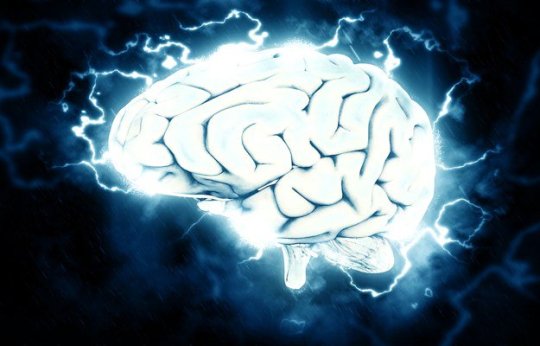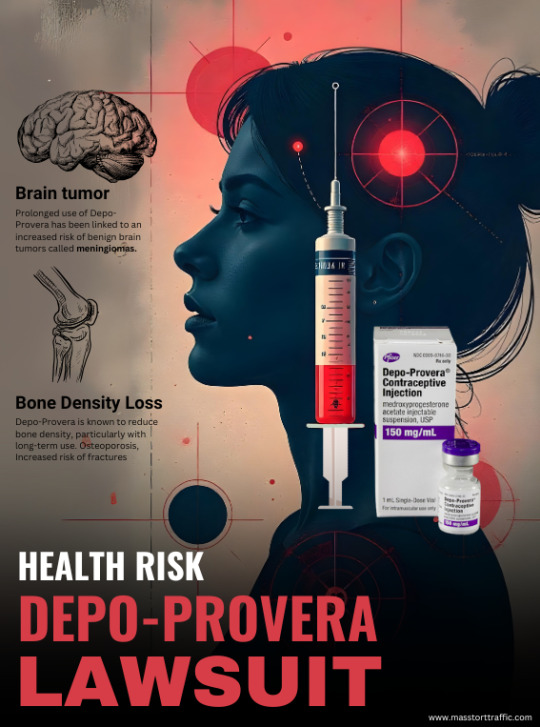#meningioma
Explore tagged Tumblr posts
Text
So there's at least two brain tumors in my head. Please please please let me be the exception and let them just fade away on their own.
8 notes
·
View notes
Text

Menings;-;
2 notes
·
View notes
Text

Help me save my son please read the gofundme link. This is not a scam!
#braincancersucks #childhoodcancerwarriors #parenthood #boymom #cancersurvivor #cancer #childhoodcancerwarrior #godslove #godsgrace #godsmercy #braintumor #meningioma
#brain cancer#childhood cancer warriors#parenting#boy mom#cancersurvivor#cancer#childhood cancer warrior#gods love#gods mercy#brain tumor#brain tumor treatment#mayo clinic#proton radiation#meningioma#meningiomas#just a kid
1 note
·
View note
Text

🚨 If you or someone you love suffered from a meningioma brain tumor and/or spinal cord tumor after receiving Depo Provera birth control shots/injections, you may be eligible to recover compensation from a Depo-Provera lawsuit case or settlement claim. ⚡https://injurylawsuitconnect.com/depo-provera-meningioma-lawsuit/
0 notes
Text
Episode 16 of my podcast is now available.
In this episode I look back on my concerns about my craniotomy causing personality changes, what did happen to me and how things are going now two years later. open.spotify.com/show/7ejKe9hK0CEhukktFzjbhg
0 notes
Text
Μηνιγγίωμα εγκεφάλου.
1 note
·
View note
Text
Illuminating the Path: Innovations in Meningioma Treatment

Meningiomas, the most common primary brain tumors, require careful consideration and personalized treatment approaches. These tumors arise from the meninges, the protective membranes surrounding the brain and spinal cord. The landscape of meningioma treatment has undergone remarkable advancements, providing hope and improved outcomes for affected individuals. This creative article explores the intricacies of meningioma treatment, delving into innovative surgical techniques, targeted radiation therapy, emerging molecular therapies, and the importance of multidisciplinary care. By illuminating the path of meningioma treatment, we strive to empower patients and healthcare professionals alike.
Understanding Meningiomas
Meningiomas are tumors that develop in the meninges, predominantly affecting the outer layer of the brain. While most meningiomas are benign, some can be aggressive and exhibit malignant behavior. These tumors can cause a variety of symptoms depending on their location and size, including headaches, seizures, vision problems, and neurological deficits.
Surgical Innovations: Maximizing Resection and Minimizing Risk
Surgery is often the primary treatment for meningiomas, with the goal of achieving maximum tumor resection while minimizing the risk of complications. Innovative surgical techniques, such as skull base approaches, neuroendoscopy, and intraoperative imaging, have revolutionized meningioma surgery. These advancements enable surgeons to access and remove tumors in challenging locations while preserving critical brain structures and minimizing the risk of postoperative complications.
Targeted Radiation Therapy: Precision and Efficacy
Radiation therapy plays a crucial role in meningioma treatment, particularly for tumors that cannot be completely resected or are recurrent. Recent advancements in radiation therapy techniques, such as stereotactic radiosurgery (SRS) and proton therapy, have significantly improved treatment outcomes. These modalities deliver precise and targeted radiation to the tumor while sparing surrounding healthy tissue, reducing the risk of side effects and promoting tumor control.
Molecular Therapies: Unlocking New Possibilities
Emerging molecular therapies are reshaping the landscape of meningioma treatment. Through the identification of specific genetic mutations and molecular pathways, targeted therapies, such as receptor tyrosine kinase inhibitors and hormone-based therapies, are being explored to disrupt tumor growth and improve patient outcomes. Clinical trials and ongoing research aim to uncover novel therapeutic targets and advance personalized treatment options for meningiomas.
Multidisciplinary Care: A Collaborative Approach
The management of meningiomas necessitates a multidisciplinary approach, involving a team of neurosurgeons, radiation oncologists, medical oncologists, pathologists, and other specialists. Collaborative tumor boards, where experts from different disciplines discuss individual cases, ensure comprehensive treatment planning and personalized care. This multidisciplinary approach facilitates optimal decision-making, tailoring treatment strategies to each patient's unique circumstances.
Rehabilitation and Supportive Care
Meningioma treatment extends beyond medical interventions. Rehabilitation therapies, including physical therapy, occupational therapy, and speech therapy, are essential for individuals to regain functional abilities and improve their quality of life. Supportive care, including psychological support and symptom management, helps patients cope with the emotional and physical challenges associated with meningioma treatment.
Promising Future Directions
The future of meningioma treatment holds promising prospects. Advancements in genomic profiling and molecular characterization of tumors will enable targeted therapies to become more precise and effective. Immunotherapies and novel drug combinations are also being explored to enhance treatment outcomes. Additionally, ongoing research aims to identify biomarkers that predict tumor behavior and response to treatment, further guiding personalized therapeutic approaches.
Conclusion
Meningioma treatment has witnessed significant advancements, providing patients with renewed hope and improved outcomes. Innovative surgical techniques, targeted radiation therapy, emerging molecular therapies, and multidisciplinary care are transforming the landscape of meningioma treatment. By staying at the forefront of medical innovation, researchers and healthcare professionals strive to improve patient outcomes, reduce side effects, and enhance quality of life. With continued research, collaboration, and patient-centered care, the path to overcoming meningiomas becomes increasingly illuminated.
0 notes
Text
how it feels when ur gross diagnosis is different than the pre-op diagnosis and u check the final dx and u turn out to be RIGHT


#pathology#i need at least one of these a day or else i give up and quit my job etc#Anyways i knew it would be an intraosseous meningioma instead of a bone met#also just did a whipple and im almost doubting theres any malignancy at all but...we will see....
11 notes
·
View notes
Text
Anyone with idiopathic intracranial hypertension and or brain tumours please please slide into my DMs and talk to me, I just want to talk to someone who gets me please
0 notes
Text

⚠️ Health Alert: Depo-Provera Contraceptive Risks ⚠️
Prolonged use of Depo-Provera has been linked to serious health risks, including brain tumors (meningiomas) and bone density loss, leading to osteoporosis and fractures. Women affected by these adverse effects are now pursuing legal action through the Depo-Provera Lawsuit to seek justice and compensation.
If you or someone you know has experienced these symptoms after using Depo-Provera, it’s time to take action! Stay informed, know your rights, and consult legal professionals today.
🧠 Health Risks Include:
Brain Tumors (Meningiomas)
Bone Density Loss & Osteoporosis
Increased Fracture Risk
📣 Don’t wait—awareness saves lives! Share this with those who need to know.
🔗 Learn More & Take Action
Visit Our Website : 🌐 www.masstorttraffic.com
#masstort#lawsuit#DepoProveraLawsuit#depoproveralawsuit#brainhealth#meningiomas#osteoporosis#healthrisks#womenshealth#medicalawareness#brainhealthawareness#justiceforwomen#personalinjurylaw#braininjury#masslawsuit#lawsuitupdates#injurylawsuit
2 notes
·
View notes
Text

📸 Meningioma Host
3 notes
·
View notes
Text
Parasagittal Meningioma Meaning, Symptoms, Causes, Treatment
Parasagittal Meningioma Meaning Meningiomas result from spinal cord and brain membrane tumors. It can compress or pressure the nearby brain, nerves, and veins even though it is not technically a brain tumor. The most frequent head tumor is meningioma. Most meningiomas grow extremely slowly, sometimes going undetected for years. However, in some cases, they can cause permanent impairment by…

View On WordPress
0 notes
Text
A Fear of Flying
Episode 14 of my podcast is now available. In it I discuss how I cured my fear of flying and the used the same technique to control my fear of my brain tumours. https://open.spotify.com/show/7ejKe9hK0CEhukktFzjbhg
#Brain Tumour#Glioma#humourous#Meningioma#NHS#positive thinking#stoicism#surviving#The Brain Tumour Charity
0 notes
Text
good news: I got both of the MRIs I needed in one appointment after all!
bad news: tumor :(
its a benign sort (meningioma?) by my pituitary gland but its pressing on my optic nerve and causing problems. hopefully removing it will restore my vision quality but that's not a guarantee
#and they'll hopefully be able to scrape it out through my nose#which is minimally invasive as far as brain surgery goes#but i guess ill know more soonish#eyeposting
49 notes
·
View notes

